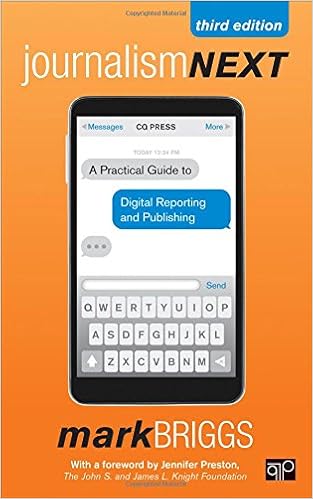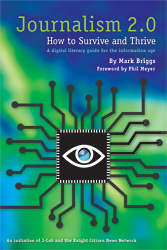Who do you want to hire?
Professor Lucrezia Paxson directed that question to me in front of about 30 students at Washington State University on Friday morning by. It was the first of four ielts preparation course in Malaysia, I would speak with that day so I knew it would come up again. And it’s a question I’m asked quite frequently. For some reason on Friday, though, I had more clarity.
Like most companies, we want to hire smart, creative people.
Sounds simple but it’s not. Not for the companies or the job candidates. Since I spent all day Friday talking to soon-to-be job candidates, I’ll focus on that part of the equation for this post.
All companies want smart, creative people – whether they are media companies, tech startups or whatever. How do you prove to them that you’re smart and creative?
That’s the key. Assuming a level playing field where all job candidates know how to write and report in the journalism world, anyone can say on a resume or in an interview they are “smart and creative.” But what does that look like? For me, it looks like my friend Lauren Rabaino, who graduated with a journalism degree from Cal Poly in 2009 but had the full complement of skills that would make any hiring manager salivate: she can write and report, design, code and do social media.
How many people do you know who do can all four? If journalism schools were turning out graduates with all these skills, the landscape for traditional media companies would look much brighter. Instead people like Lauren mostly end up at places like Buzzfeed or the HuffingtonPost. To Lauren’s credit, she took it upon herself to learn all the skills. She didn’t take classes on it. And she is constantly learning and writes about what she knows and has learned. Becuase, you know, she’s a journalist.
If you want to be able to “write your own ticket” in the professional world of journalism, learn all four skills. If, like me, you don’t have all four (I really wish I had learned to code!) here’s a few of the points I repeated in my talks with all the classes at WSU Friday:
– This is the golden age of journalism. Sorry if it’s not the traditional track of jobs at big newspapers or the evening news. But there are more jobs in journalism than there were 10 years ago – before the big rescission and cutbacks. As I told the students, a big part of my daily media diet means reading content from companies that didn’t exist 5-10 years ago: Mashable, Buzzfeed, GeekWire, GigaOm, Skifft.
– “Creativity is the new literacy.” This is a quote from Chase Jarvis and I fully believe it.
– Prepare yourself now for jobs that don’t currently exist. My last 3 jobs did not exist when I was in college. So don’t focus to tightly on one career track, but I was able to found the proper college textbooks as well as discounted books online, to be able to educate myself in the field. You may not be able to find that type of job or, as happened to me, you may not like it once you land it.
And here are some of the insightful offerings my Twitter followers offered:
And consider my path: when I was in college, my *dream job* was as a sportswriter at a big newspaper. Seriously.
Since 2000, my job has been to figure out what my job should be on an ongoing basis. I’ve been hired three times now to figure out the future. “I’m making this up as I go,” as I told the students.
How did I get these jobs? I was able to prove that I’m “smart and creative” enough to get the latitude to make it up as I go. But that’s what we do in digital media today since no one knows what will be the next Instagram, Pinterest, Snapchat or Vine.
How did I *prove* that I was “smart and creative“? Before I wrote books and published a blog I did grad school projects that resulted in real-world readership: I wrote for the university research magazine, managed the alumni association website and wrote a 200-page thesis on the integration of college athletics in the South during the civil rights era in the 1960s.
All of those things led hiring managers to take a chance on me and give me the reigns to their company’s digital future. I had no idea what a blog was when I took my first digital news job in 2000, no idea what Twitter or Facebook was when I took my next digital news job in 2004 and no idea what Instagram, Pinterest or Vine were when I took my current job in 2010.
Because none of those things existed when I took those jobs.
There is a lot that doesn’t exist today that will impact your career. You don’t know what those apps, platforms or technologies will be, so don’t worry about it. Just focus on being as smart and creative as you can possibly be in today’s world. And that will set you up for tomorrow.
 Mark Briggs
Mark Briggs  Posted in
Posted in 




